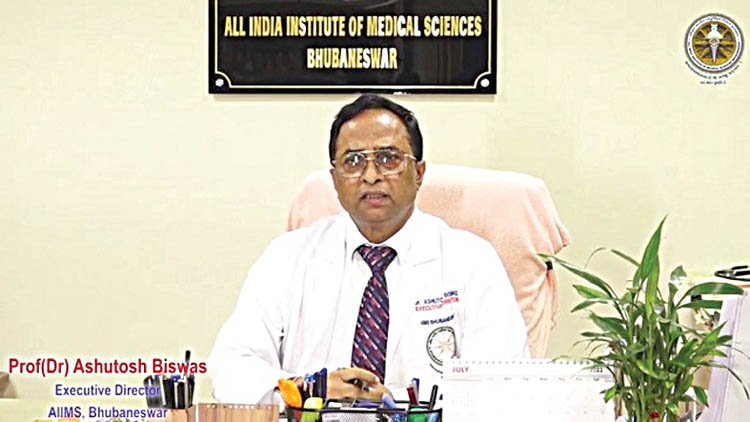Bhubaneswar, Sep 11 (Bureau) The incidence of brain strokes has become a pressing health issue in India, with approximately 2,000 cases reported daily across the country. A recent study published in The Lancet revealed that the rate of strokes in Odisha is higher than the national average, with nearly one in seven residents at risk. This growing health issue, once primarily associated with older adults, is now increasingly affecting younger populations due to factors such as sedentary lifestyles, poor dietary habits, rising stress levels, and the growing prevalence of diabetes and hypertension. These concerns were discussed at the Indian Association of Neurology (IAN) Stroke Subsection Midterm Conference, organized by the Department of Neurology at AIIMS Bhubaneswar here recently.
Themed “Code Stroke to Stroke Intervention,” the conference featured in-depth discussions on early stroke detection, advancements in treatment, and the critical importance of stroke prevention. Renowned neurologists from across the country participated in the event. Dr. Ashutosh Biswas, Executive Director of AIIMS Bhubaneswar, noted that the Neurology Department treats over 500 stroke patients every month, providing comprehensive care that includes intravenous thrombolysis, mechanical thrombectomy, stroke neurosurgery, neurocritical care, and advanced neuro-rehabilitation services.
Dr. Sunil K. Narayan, Chairman of the IAN Stroke Subsection, Dr. Nirmal Surya, President of the Indian Stroke Association, and Dr. Kameshwar Prasad, Dr. P. Vijaya, and Dr. S. P. Gorthi, all spoke extensively on stroke management at the conference. A poster session on stroke was also organized for resident doctors and faculty members. The event concluded with the felicitation of Dr. R. N. Sahoo, a veteran neurologist, who was honoured with the Lifetime Achievement Award for his dedicated service to the field. Other dignitaries who spoke at the event included Dr. P. R. Mohapatra, Dean (Academics), and Dr. D. K. Parida, Medical Superintendent at AIIMS Bhubaneswar.

